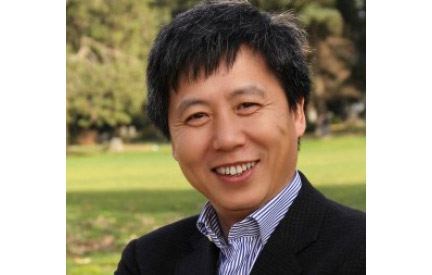An education scholar is headed to Prince George today for a talk to challenge learning norms and a standardized education approach, arguing both are a disservice to the diverse talents of youth.
"What we need is a paradigm shift in education which looks at every individual student," said Yong Zhao, a professor of education at the University of Oregon, who also acts as the director of the Institute for Global and Online Education at the institution.
"We need a personalized education experience for every child. Education is about creating opportunity for individuals and not about raising the average test scores of a group."
It's a controversial conversation, Zhao said, because it challenges current understandings of academic success.
"Our current schools leave too many kids behind," said Zhao, who has published 20 books and more than 100 articles. "Many students get disengaged and we have only branded going to college, academic excellence as the only way for a better life."
Instead, education should support student strength and passion.
Rather than homework with a grade as the outcome, students should be challenged to produce work that matters more than to just to get a grade or meet a requirement.
"We live in a globalized world with technology replacing a lot of traditional jobs so we need our children to be more creative, more entrepreneurial to look at opportunities this technology and globalization presents to us."
He'll be speaking at Vanier Hall tonight at 7 p.m. Zhao called School District 57 progressive, and said he was invited by superintendent Brian Pepper after a talk a couple months ago.
In a posting for the event, the Prince George Teachers' Association welcomed the conversation.
"Schools are being pushed to produce homogenous, compliant, and employee-minded test-takers, as a result of seductive power of the traditional education paradigm," the website read.
Zhao said it's important for parents to shift their thinking too, adding he hopes they come to the event alongside educators.
"I think it would be interesting for parents to have a look at a strength based approach, look at what the children can do, not to only judge their children based on what they've been told based on test scores from the province or other places."
Although he said change is happening, there are a number of barriers to overcome - chief among them how we define excellence.
"The second barrier is the mindset of the old paradigm, that we have to organize children in certain ways.
"We have a textbook. We have to put children into groups.
"The idea of a classroom is probably outdated," he said, and even how we organize learning for children.
"Age does not define a person's ability at all in many ways."
When asked how one teacher could implement a personalized approach for a group of 20 or more students, Zhao said it's about shifting traditional roles for students and teachers.
"We are thinking of student led and teacher supported," he said.
"We need to look hard at children, students as autonomous learners. We can cultivate them to help organize support."
In his model, technology is used less as a teaching support and more by the students themselves.
"Use technology to bring in resources from other places that are unavailable locally in schools, especially in places like Prince George," he said.
Even though it may take time for the system to get on board, Zhao said there are still things teachers can start doing today.
"I would try to ask a teacher to at least ask students what they would like to learn. What are they interested in? Or what are they are good at, what they want to be good at."
The goal is to encourage personal growth rather than success in a single subject.
"Teachers they may not be able to make the drastic change but at least they begin to recognize that our job is to teach children, not teach math," he said.
"It basically takes a change of mindset."



